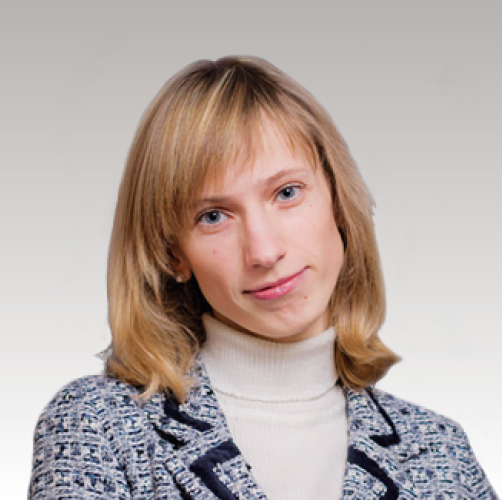Doctor, we know that in Ukraine you worked as a researcher focusing on wastewater and waste as such. Can you briefly describe your experience?
I have 10-years’ experience in research related to wastewater and sludge treatment and a long-standing collaboration in this area in Sumy region (Ukraine).
I previously dealt with the basic stages of anaerobic digestion of sewage sludge and phosphogypsum waste under bio-sulfidogenic conditions and the effects of ozone pretreatment on the biodegradability of sewage sludge. The result of my work was, for example, a finding that the use of sludge pre-treatments prior to the anaerobic digestion process leads to an increase in organic matter removal under mesophilic conditions. My dissertation thesis “Scientific basis of the ecological-synergetic approach to the process of phosphogypsum utilization to reduce the anthropogenic load on the environment” also covered these topics.
I also serve as director of the International Innovation and Applied Center “Aquatic Artery” in Sumy region, which develops cooperation in the field of water protection and wastewater recycling.
What issues have your last projects focused on?
My research activity focuses on technologies and processes of environment protection, in particular the biotechnologies of waste recycling, with special attention being paid to the pre-treatment and utilization of waste/by-products for bioconversion with the production of bio-based products (biogas, bio-fertilizer, bio-sulphur, etc.). The sphere of my scientific interests also comprises the theoretical and practical aspects of the synergetic concept of nonlinear ecosystems processes, which include the estimation of anthropogenic impact.
Among the projects related to this area, I can mention, for example, a grant for the multidisciplinary research team “Bioenergy processes of waste recycling”, or a joint Ukrainian-Czech project “Bioenergy innovations in waste recycling and rational use of natural resources”.
Before you were forced to leave Ukraine, did the situation in your city allow you and your co-workers to continue their work, at least in part, or was it necessary to stop working on your projects altogether?
Before I left Sumy in March 2022, there was a university holiday due to the difficult military situation.
You have been in the Czech Republic for a short time. Of course, the first thing was to provide for yourself and your relatives basic needs, such as housing, and subsequently work. Therefore we would like to ask – how do you cooperate with the Czech team? Have you had the opportunity to apply your experience in one of the already running projects?
The Czech team at the Institute treated me and my family very well. I am very grateful for their support. I am now involved as a researcher in the work of the Department of Water Supply and Wastewater Treatment, as well as in “Centrum Voda”, and I hope that my experience will be in demand. We discussed the possibilities of developing a research network internationally, as well as applications to the Horizon Europe programme. I think that my activity in “Aquatic Artery” exactly overlaps with the international grant activity of “Centrum Voda”.
Is there a topic that could be submitted as a project in subsequent national calls in the Czech Republic and that you could work on even after returning to Ukraine?
I think topics related to sewage sludge treatment and phosphogypsum processing (as their recycling is very important today around the world) can be developed both in the Czech Republic and Ukraine, both at the level of national competitions and in the context of grant applications at the EU level.
I am looking forward to fruitful work in your Institute as well as cooperation with the Czech University of Life Sciences Prague. I hope this cooperation can be continued and developed in the long term, even after my return to Ukraine.
Thank you for your work for TGM WRI and for the time you devoted to our interview.

Dr. Yelizaveta Chernysh
Works at the Department of Ecology and Environmental Protection Technologies, Sumy State University (SSU, Ukraine) and currently also at T. G. Masaryk Water Research Institute. Yelizaveta Chernysh was born in 1987. After receiving a master’s degree in Ecology and Environmental Protection (2010), she defended her doctoral thesis in Ecological safety in 2019 at SSU and received a Doctor of Technical Sciences degree (2020). In 2021, she received the academic title of Associate Professor in the Department of Ecology and Environmental Protection Technologies at SSU. Apart from SSU, she works as a director of the International Innovation and Applied Center “Aquatic Artery” in Sumy region (Ukraine). She has received a number of awards and foreign scholarships (Germany, France). She is a reviewer of many prestigious scientific publications and a member of several professional international organizations (e.g., Solid Waste Association of North America, and Hong Kong Chemical, Biological & Environmental Engineering Society). Currently she works as a researcher at TGM WRI in Prague and teaches at the Czech University of Life Sciences Prague.
